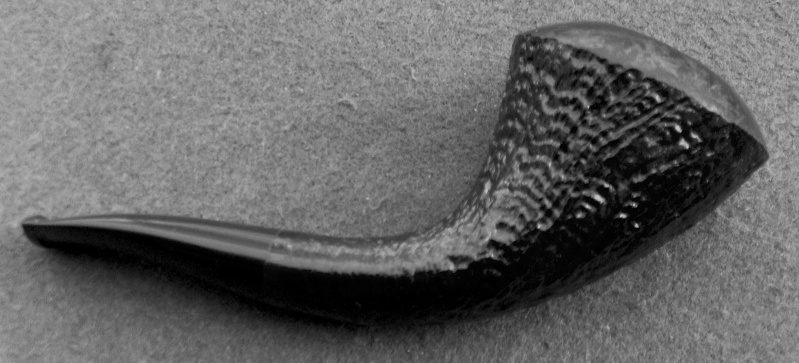G.H. & co. Curly Cut in an S. Bang horn

It's the birthday of Charles Dickens, born on this day in 1812 in Portsmouth, England. He was an extremely popular novelist — and still is today. Many people know the characters he created, even if they have never read his books.
There is Miss Havisham, the wealthy spinster in Great Expectations. The novel is narrated by an orphan named Pip, who is hired by Miss Havisham to be a companion for her beautiful adopted daughter, Estella. Miss Havisham is still bitter that she was jilted at the altar as a young woman. She wears a yellowing wedding dress, and all her clocks are stopped at 8:40 because that's the minute when she found out that her fiancé had deserted her. Her house is falling to ruins, and the banquet table is still spread with a rotting bug-infested wedding feast.
She encourages Pip to fall in love with Estella, because she wants Estella to break the hearts of as many men as possible. She says, "Love her, love her, love her! If she favors you, love her. If she wounds you, love her. If she tears your heart to pieces — and as it gets older and stronger it will tear deeper — love her, love her, love her!"
There is Scrooge, the cold-hearted miser in A Christmas Carol. Dickens describes Scrooge as "secret, and self-contained, and solitary as an oyster. The cold within him froze his old features, nipped his pointed nose, shriveled his cheek, stiffened his gait; made his eyes red, his thin lips blue; and spoke out shrewdly in his grating voice."
There are Charles Darnay and Sydney Carton, in A Tale of Two Cities. Charles Darnay is a French aristocrat who has gone to England to renounce his part in the brutal French aristocracy; Sydney Carton is an alcoholic English barrister. The two men look almost identical, and they are both in love with the same woman, Lucie Manette. Carton hates Darnay because the aristocrat is successful and embodies courage and nobility, and because Lucie chooses to marry Darnay and not Carton. But in the end, Carton saves Darnay. Darnay goes back to France, where he is arrested and sentenced to death for being an aristocrat. Since Carton looks so much like Darnay, he visits him in prison, changes clothes with him, and goes to the guillotine in his place, saying, "It is a far, far better thing that I do, than I have ever done; it is a far, far better rest that I go to than I have ever known."
There is Fagin, the wily ringleader of a group of child criminals in Oliver Twist. His child pickpockets include the nine-year-old orphan Oliver and Jack Dawkins, known as the Artful Dodger.
There is Little Nell, the heroine of The Old Curiosity Shop, a beautiful and virtuous 13-year-old who lives with her grandfather in his curio shop. They are evicted and travel across the country, trying to stay away from the evil moneylender Daniel Quilp. They finally reach a safe place, but Nell has become sick from traveling and lack of food, and she finally dies in a dramatic deathbed scene.
Since The Old Curiosity Shop was published in installments in a weekly journal, readers had to wait to find out what happened to Little Nell. In America, readers had to wait even longer — until the serial made it from England by boat. For the last installment of the novel, people crowded the pier in New York and shouted to the incoming ship, "Is Little Nell dead?"
And there is David Copperfield. His father dies before he is born, and he has a happy childhood with his mother and his nurse Peggotty. But then his mother remarries a cruel man, and David gets sent to a school with a strict headmaster. His mother dies, he has to work in an awful factory, and his friend and landlord Wilkins Micawber is sent to debtors' prison. A villainous, greedy clerk named Uriah Heep tries to ruin him. But everything turns out well in the end. In a preface to David Copperfield, Charles Dickens wrote: "I have in my heart of hearts a favorite child. And his name is David Copperfield."
http://writersalmanac.publicradio.org/




